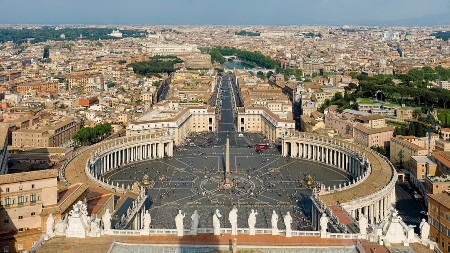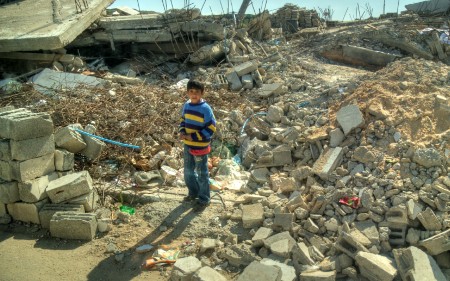We ask you, urgently: don’t scroll past this
Dear readers, Catholic Online was de-platformed by Shopify for our pro-life beliefs. They shut down our Catholic Online, Catholic Online School, Prayer Candles, and Catholic Online Learning Resources—essential faith tools serving over 1.4 million students and millions of families worldwide. Our founders, now in their 70's, just gave their entire life savings to protect this mission. But fewer than 2% of readers donate. If everyone gave just $5, the cost of a coffee, we could rebuild stronger and keep Catholic education free for all. Stand with us in faith. Thank you.Help Now >
Special Year: Also to Get Priests Back in Shape
FREE Catholic Classes
Benedict XVI has proclaimed it in order to strengthen the spiritual identity of the clergy and to purify it from 'filth.'
Highlights
Chiesa (chiesa.espresso.repubblica.it)
6/12/2009 (1 decade ago)
Published in Europe
ROME (Chiesa) - In a few days, on Friday the 19th, the feast of the Sacred Heart of Jesus, the special Priestly Year conceived by Benedict XVI will begin.
Pope Joseph Ratzinger explained the reasons for it to the cardinals and bishops of the congregation for the clergy, who met last March for their plenary assembly.
Until 1967, the congregation for the clergy was called the congregation "of the Council." It had been set up, in fact, after the Council of Trent, in order to oversee the application of the council guidelines on the part of the clergy with the care of souls.
The profile of the priest outlined by the Council of Trent characterized the life of the Catholic Church until the second half of the 20th century. It was exemplified by the sainted Curé d'Ars, Jean-Marie Vianney, the 150th anniversary of whose death falls this year.
Over past few decades, however, the identity of the Catholic priest has in varying degrees been transformed, obscured, and fragmented under the blows of secularization, outside of and within the Church.
The intention of the Priestly Year is precisely that of rebuilding in the priest a strong spiritual identity, faithful to his original mission. This also involves an energetic effort to eliminate the "filth" that has polluted part of the clergy, limited in numbers but disastrous on the level of its worldwide image.
But the occurrence of another event must be noted in this regard. With the beginning of the Priestly Year, there will also be the start of the apostolic visitation that the Vatican authorities have ordered to be conducted in the congregation of the Legionaries of Christ.
This congregation distinguishes itself by its abundance of vocations and its large number of new priests. At the same time, however, it risks collapsing just as the figure of its charismatic founder, the priest Marcial Maciel, has collapsed. The definitive revelation of Maciel's gravely immoral double life has now become a terrible scandal, above all for those who were his most fervent disciples.
Rebuilding the spiritual identity of the clergy therefore also implies special attention to their formation. Just as the seminaries were one of the milestones of the reform of the Church advocated by the Council of Trent, so also today it is in the seminaries that the identity of the new priests is being forged.
The congregation for the clergy does not oversee the seminaries. They are supervised by the congregation for Catholic education.
This congregation must also, then, make an effort to ensure that the Priestly Year bears fruit. And it has even taken the first steps, to judge from the speech given by its secretary, Jean-Louis Brugučs, to the rectors of pontifical seminaries who met in Rome in recent days.
Archbishop Brugučs, 66, a Dominican, was bishop of Angers until 2007. In addition to being secretary of the congregation for Catholic education, he is vice president of the pontifical work for ecclesiastical vocations and a member of the commission for the formation of candidates for the priesthood. He is also an academic at the St. Thomas Aquinas pontifical academy.
His speech to seminary rectors doesn't use any curial language at all. It is unusually frank. In no uncertain terms, it describes and denounces the failures following the council, in Europe in particular, including the astonishing ignorance on elementary points of doctrine that is found today in young men entering the seminary.
This ignorance is so significant that one of the remedies recommended by Archbishop Brugučs is the dedication of an entire year at the seminary to the teaching of the Catechism of the Catholic Church.
The Catechism "ad parochos" was another of the milestones of the Tridentine reform. Four centuries later, we're there again.
---
Chiesa is a wonderful source on all things Catholic in Europe. It is skillfully edited by Sandro Magister. SANDRO MAGISTER was born on the feast of the Guardian Angels in 1943, in the town of Busto Arsizio in the archdiocese of Milan. The following day he was baptized into the Catholic Church. His wife�s name is Anna, and he has two daughters, Sara and Marta. He lives in Rome.
Join the Movement
When you sign up below, you don't just join an email list - you're joining an entire movement for Free world class Catholic education.

-

-
Mysteries of the Rosary
-
St. Faustina Kowalska
-
Litany of the Blessed Virgin Mary
-
Saint of the Day for Wednesday, Oct 4th, 2023
-
Popular Saints
-
St. Francis of Assisi
-
Bible
-
Female / Women Saints
-
7 Morning Prayers you need to get your day started with God
-
Litany of the Blessed Virgin Mary
Daily Catholic
 Daily Readings for Thursday, January 16, 2025
Daily Readings for Thursday, January 16, 2025 St. Fursey: Saint of the Day for Thursday, January 16, 2025
St. Fursey: Saint of the Day for Thursday, January 16, 2025 Prayer for a Blessing on the New Year: Prayer of the Day for Tuesday, December 31, 2024
Prayer for a Blessing on the New Year: Prayer of the Day for Tuesday, December 31, 2024- Daily Readings for Wednesday, January 15, 2025
- St. Paul the Hermit: Saint of the Day for Wednesday, January 15, 2025
- St. Theresa of the Child Jesus: Prayer of the Day for Monday, December 30, 2024
![]()
Copyright 2024 Catholic Online. All materials contained on this site, whether written, audible or visual are the exclusive property of Catholic Online and are protected under U.S. and International copyright laws, © Copyright 2024 Catholic Online. Any unauthorized use, without prior written consent of Catholic Online is strictly forbidden and prohibited.
Catholic Online is a Project of Your Catholic Voice Foundation, a Not-for-Profit Corporation. Your Catholic Voice Foundation has been granted a recognition of tax exemption under Section 501(c)(3) of the Internal Revenue Code. Federal Tax Identification Number: 81-0596847. Your gift is tax-deductible as allowed by law.






 Daily Readings for Thursday, January 16, 2025
Daily Readings for Thursday, January 16, 2025 St. Fursey: Saint of the Day for Thursday, January 16, 2025
St. Fursey: Saint of the Day for Thursday, January 16, 2025 Prayer for a Blessing on the New Year: Prayer of the Day for Tuesday, December 31, 2024
Prayer for a Blessing on the New Year: Prayer of the Day for Tuesday, December 31, 2024


